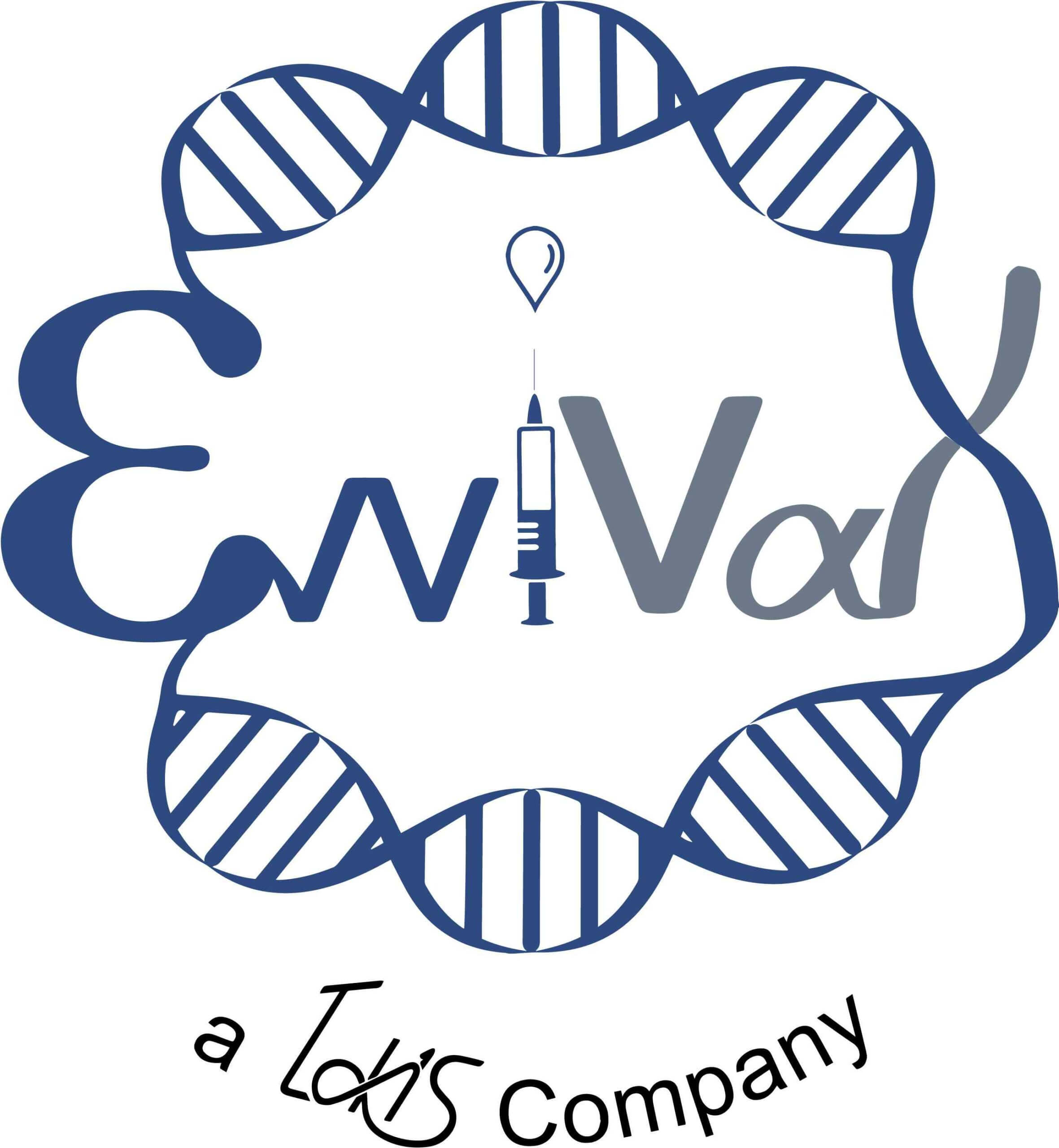
Unique PCR-based bulk DNA manufacturing offers purity, simplicity and speed to developers of DNA-based therapeutics; company seeing growing interest from market participants as awareness of proprietary processes increases
STONY BROOK, N.Y. November 30, 2017. Applied DNA Sciences, Inc. (NASDAQ: APDN, “Applied DNA”, “the Company”), has begun initial Research and Development pilots for the manufacture of DNA for use in DNA-based therapeutics for two companies. Several other companies have requested proposals for additional DNA-based therapeutics. In one project, the Company is engaged in evaluation of a DNA therapeutic with a US-based customer and in the second, the Company is conducting an evaluation of two animal vaccines with Evvivax srl, an Italian biotech company focused on healthcare for companion animals. These pilots will be developed using the Company’s proprietary and patented large-scale PCR (polymerase chain reaction) DNA production processes and devices.
“We are seeing strong business momentum in our biopharm vertical as awareness of and interest in our proprietary processes and devices for the production of DNA using PCR methods increases, thereby offering us an additional driver of long-term and profitable growth. As our team’s sophistication, breadth of experience and recognition by leading scientists continues to mature, we are fielding pilot requests that are greater in number, financial significance and duration. Recently, we have fielded six new requests for pilot quotation for DNA therapeutics,” commented Dr. James Hayward, president and CEO of Applied DNA.
Dr. Luigi Aurisicchio, Chief Executive and Scientific Officer of Evvivax srl, stated: “We are pleased with the technical capabilities and customer service of the Applied DNA team. PCR-production of DNA offers advantages over ‘plasmid produced’ DNA. The goal of this pilot is to quantify those advantages for use in our animal vaccines.” USDA has already approved a number of DNA-vaccines for animals.
The new pilots complement current agreements to supply PCR-produced DNA to suppliers of diagnostics. The Company’s current customers develop the diagnostic tests, while Applied DNA acts as the long-term supplier of their customized DNA. The Company continues to cultivate opportunities in diagnostics for its PCR-produced DNA that is cleaner, faster, and more easily modified than DNA made from legacy technologies.
This is a natural extension to the Company’s roadmap of DNA-tagging commercial pharmaceutics to secure supply chains of approved drugs. The DNA tags are short, have no biological function by design, and are present as traceable “excipients,” which aid in the manufacture of finished drugs, but are not the Active Pharmaceutic Ingredients (APIs). Now the Company’s portfolio will include (longer) functional DNA therapeutics.
“We have the know-how in place to drive the Company’s new role in the DNA diagnostics and therapeutics market, and the commercial connectivity between the two. Our competencies in PCR enable us to transition from bench to production quickly. Our existing industrial taggant and new biomedical programs complement one another perfectly, steadily improving our capacity to manufacture simple (short) and complex (long) DNA sequences. Our cutting-edge methods to design and detect DNA support all of these markets,” remarked Dr. Mike Hogan, Vice President of Life Sciences for Applied DNA.
DNA vaccines have until now, been based primarily upon “plasmid” delivery. Plasmids are small, circular, double-stranded molecules of DNA found in bacteria and yeast. These molecules have traditionally been the tools used to manufacture DNA. However, a plasmid-based technology for gene therapy suffers from a number of drawbacks that include: a) the active DNA only represents about 30-50% of the plasmid, b) the remaining 50-70% of the plasmid contains multiple genetic components unrelated to the DNA vaccine that may have unintended consequences in humans, c) the plasmid-containing bacteria must be grown in very large vessels, over many days, to yield DNA supplies adequate for vaccines, d) the bacteria used to produce the plasmids contain toxins and pyrogens, that can cause illness and fevers if present in the DNA preparation that is given to a patient.
Dr. Stephen Hughes, Director of DNA Programs, stated: “Our network of contacts includes thought-leaders in industrial biotech, personalized medicine, and the requirements for precision diagnosis, and DNA therapeutics. It is very rewarding to be able to deploy the newest development in our sciences, for benefit in industry and medicine.”
PCR-produced DNA is very pure, especially compared to plasmids. Bacteria are not used during manufacturing. The reaction starting materials are limited to the nucleotides (adenine, thymine, guanine and cytosine) contained within the target sequence, an enzyme called polymerase, the template for the target DNA and primers. Almost all the starting materials are consumed during the reaction. Any residual reactants are easily removed during purification of the target DNA, due especially to the latter’s far greater size. Most importantly, the PCR-produced DNA contains only the DNA elements required for DNA therapeutic function and is free of any of the extraneous genetic elements intrinsic to a plasmid-based carrier.
About Evvivax
EVVIVAX is a Biotech company based in Rome, Italy. EVVIVAX aims at translating scientific breakthrough achievements in Cancer Immunotherapy into marketed innovative products in Veterinary and subsequently in Human Oncology. Veterinary Oncology is an extraordinary growing market opportunity: one in every four dogs will develop cancer during its lifetime and this generally kills nearly half of pet dogs over the age ten. EVVIVAX Cancer Vaccines are based on an Adenoviral vector/DNA platform technology. EVVIVAX’ frontline candidates are two therapeutic cancer vaccines for canine tumors: Tel-eVax, targeting Telomerase (TERT), a key molecule in Oncology. b) Erb-eVax, against HER2/neu oncogene, a well-known and validated target. The main cancer types suitable for these immunotherapies are: Lymphomas, Breast, Osteosarcoma and Transitional cell carcinomas.
EVVIVAX stems from new, European platform technologies, and aims to offer novel therapeutic avenues to pet cancer patients, with the strong translational potential to complement current human Immune-Oncology approaches in the next future.
About Applied DNA Sciences
Applied DNA is a provider of molecular technologies that enable supply chain security, anti-counterfeiting and anti-theft technology, product genotyping and DNA mass production for diagnostics and therapeutics.
We make life real and safe by providing innovative, molecular-based technology solutions and services that can help protect products, brands, entire supply chains, and intellectual property of companies, governments and consumers from theft, counterfeiting, fraud and diversion. The proprietary DNA-based “CertainT®” platform can be used to identify, tag, test, and track products, to help assure authenticity, origin, traceability, sustainability and quality of products.
SigNature® DNA describes the core technology ingredient that is at the heart of a family of uncopyable, security and authentication solutions such as SigNature® T and fiberTyping®, targeted toward textiles and apparel, BackTrac™ and DNAnet®, for anti-theft and loss prevention, and digitalDNA®, providing powerful track-and-trace. All provide a forensic chain of evidence, and can be used to prosecute perpetrators. Applied DNA Sciences is also engaged in the large-scale production of specific DNA sequences using the polymerase chain reaction.
Visit adnas.com for more information. Follow us on Twitter and LinkedIn. Join our mailing list.
The Company’s common stock is listed on NASDAQ under the symbol APDN, and its warrants are listed under the symbol APDNW.
Forward Looking Statements
The statements made by APDN in this press release may be “forward-looking” in nature within the meaning of the Private Securities Litigation Act of 1995. Forward-looking statements describe APDN’s future plans, projections, strategies and expectations, and are based on assumptions and involve a number of risks and uncertainties, many of which are beyond the control of APDN. Actual results could differ materially from those projected due to our short operating history, limited financial resources, limited market acceptance, market competition and various other factors detailed from time to time in APDN’s SEC reports and filings, including our Annual Report on Form 10-K filed on December 6, 2016, and our subsequent quarterly reports on Form 10-Q filed on February 9, 2017, May 11, 2017 and August 10, 2017, which are available at www.sec.gov. APDN undertakes no obligation to update publicly any forward-looking statements to reflect new information, events or circumstances after the date hereof to reflect the occurrence of unanticipated events, unless otherwise required by law.
CONTACTS
Investors:
LHA Investor Relations
Sanjay M. Hurry, 212-838-3777
shurry@lhai.com
Media:
Dian Griesel Int’l
Cheryl Schneider, 212-825-3210
cschneider@dgicomm.com
Program:
Brian Viscount, 631-240-8800
Executive Director Product Management
brian.viscount@adnas.com
web: www.adnas.com
twitter:
@APDN


